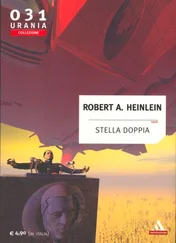Robert Heinlein - Sixth Column
Здесь есть возможность читать онлайн «Robert Heinlein - Sixth Column» весь текст электронной книги совершенно бесплатно (целиком полную версию без сокращений). В некоторых случаях можно слушать аудио, скачать через торрент в формате fb2 и присутствует краткое содержание. ISBN: , Жанр: Фантастика и фэнтези, на английском языке. Описание произведения, (предисловие) а так же отзывы посетителей доступны на портале библиотеки ЛибКат.
- Название:Sixth Column
- Автор:
- Жанр:
- Год:неизвестен
- ISBN:0-671-72026-0
- Рейтинг книги:3 / 5. Голосов: 1
-
Избранное:Добавить в избранное
- Отзывы:
-
Ваша оценка:
- 60
- 1
- 2
- 3
- 4
- 5
Sixth Column: краткое содержание, описание и аннотация
Предлагаем к чтению аннотацию, описание, краткое содержание или предисловие (зависит от того, что написал сам автор книги «Sixth Column»). Если вы не нашли необходимую информацию о книге — напишите в комментариях, мы постараемся отыскать её.
Sixth Column — читать онлайн бесплатно полную книгу (весь текст) целиком
Ниже представлен текст книги, разбитый по страницам. Система сохранения места последней прочитанной страницы, позволяет с удобством читать онлайн бесплатно книгу «Sixth Column», без необходимости каждый раз заново искать на чём Вы остановились. Поставьте закладку, и сможете в любой момент перейти на страницу, на которой закончили чтение.
Интервал:
Закладка:
"God knows what I'm raising those kids up to. Some nights it seems like the only reasonable thing to do is to put them all out of their sorrow. But Jessie -- that's my wife -- says it's a scandal and a sin to talk that way, that the Lord will take care of things all in His own good time. Maybe so -- but I know it's no favor to a child to raise it up to be bossed around and lorded over by those monkeys." He spat. "It's not American."
"What's this about penalties for harboring refugees?"
The rancher stared at him. "Where've you been, friend?"
"Up in the hills. I haven't laid eyes on one of the so-and-so's yet."
"You will. But then you haven't got a number, have you? You'd better get one. No, that won't do you any good; you'd just land in a labor camp if you tried to get one."
"Number?
"Registration number. Like this." He pulled a glassine-covered card out of his pocket and displayed it. It had axed to it a poor but recognizable picture of the rancher, his fingerprints, and pertinent data as to his occupation, marital status, address, etcetera. There was a long, hyphenated number running across the top. The rancher indicated it with a work-stained finger. "That first part is my number. It means I have permission from the emperor to stay alive and enjoy the air and sunshine," he added bitterly. "The second part is my serial classification. It tells where I live and what I do. If I want to cross the county line, I have to have that changed. If I want to go to any other town than the one I'm assigned to do my marketing in, I've got to get a day's special permit. Now I ask you -- is that any way for a man to live?"
"Not for me," agreed Thomas. "Well, I guess I had better be on my way before I get you in trouble. Thanks for the breakfast."
"Don't mention it. It's a pleasure to do a favor for a fellow American these days."
He started off down the road at once, not wishing the kindly rancher to see how thoroughly he had been moved by the picture of his degradation. The implications of that registration card had shaken his free soul in a fashion that the simple, intellectual knowledge of the defeat of the United States had been unable to do.
He moved slowly for the first two or three days, avoiding the towns until he had gathered sufficient knowledge of the enforced new customs to be able to conduct himself without arousing suspicion. It was urgently desirable that he be able to enter at least one big city in order to snoop around, read the bulletin boards, and find a chance to talk with persons whose occupations permitted them to travel. From a standpoint of personal safety he was quite willing to chance it without an identification card but he remembered clearly a repeated injunction of Ardmore's "Your paramount duty is to returns Don't go making a hero of yourself. Don't take any chance you can avoid and come back!"
Cities would have to wait.
Thomas skirted around towns at night, avoiding patrols as he used to avoid railroad cops. The second night out he found the first of his objectives, a hobos' jungle. It was just where he had expected to find it, from his recollection of previous trips through the territory. Nevertheless, he almost missed it, for the inevitable fire was concealed by a jury-rigged oil-can stove, and shielded from chance observation.
He slipped into the circle and sat down without comment, as custom required, and waited for them to look him over.
Presently a voice said plaintively: "It's Gentleman Jeff. Cripes, Jeff, you gave me a turn. I thought you was a flatface. Whatcha been doin' with yourself, Jeff?"
"Oh, one thing and another. On the dodge."
"Who isn't these days?" the voice returned. "Everywhere you try, those slant-eyes --" He broke into a string of attributions concerning the progenitors and personal habits of the PanAsians about which he could not possibly have had positive knowledge.
"Stow it, Moe," another voice commanded. "Tell us the news, Jeff."
"Sorry," Thomas refused affably, "but I've been up in the hills, kinda keeping out of the army and doing a little fishing."
"You should have stayed there. Things are bad everywhere. Nobody dares give an unregistered man a day's work and it takes everything you've got just to keep out of the labor camps. It makes the big Red hunt look like a picnic."
"Tell me about the labor camps," Thomas suggested. "I might get hungry enough, to try one for a while." .
"You don't know. Nobody could get that hungry." The voice paused, as if the owner were turning the unpleasant subject over in his mind. "Did you know the Seattle Kid?"
"Seem to recall. Little squint-eyed guy, handy with his hands?"
"That's him. Well, he was in one, maybe a week, and got out. Couldn't tell us how; his mind was gone. I saw him the night he died. His body was a mass of sores, blood poisoning, I guess." He paused. then added reflectively: "The smell was pretty bad."
Thomas wanted to drop the subject but he needed to know more. "Who gets sent to these camps?"
"Any man that isn't already working at an approved job. Boys from fourteen on up. All that was left alive of the army after we folded up. Anybody that's caught without a registration card."
"That ain't the half of it," added Moe. "You should see what they do with unassigned women. Why, a woman was telling me just the other day -- a nice old gel; gimme a handout. She was telling me about her niece used to be a schoolteacher, and the flatfaces don't want any American schools or teachers. When they registered her they --"
"Shut up, Moe. You talk too much."
It was disconnected, fragmentary, the more so as he was rarely able to ask direct questions concerning the things he really wanted to know. Nevertheless he gradually built up a picture of a people being systematically and thoroughly enslaved, a picture of a nation as helpless as a man completely paralyzed, its defenses destroyed, its communications entirely in the hands of the invaders.
Everywhere he found boiling resentment, a fierce willingness to fight against the tyranny, but it was undirected, uncoordinated, and, in any modern sense, unarmed. Sporadic rebellion was as futile as the scurrying of ants whose hill has been violated. PanAsians could be killed, yes, and there were men willing to shoot on sight, even in the face of the certainty of their own deaths. But their hands were bound by the greater certainty of brutal multiple retaliation against their own kind. As with the Jews in Germany before the final blackout in Europe, bravery was not enough, for one act of violence against the tyrants would be paid for by other men, women, and children at unspeakable compound interest.
Even more distressing than the miseries he saw and heard about were the reports of the planned elimination of the American culture as such. The schools were closed. No word might be printed in English. There was a suggestion of a time, one generation away, when English would be an illiterate language, used orally alone by helpless peons who would never be able to revolt for sheer lack of a means of communication on any wide scale.
It was impossible to form any rational estimate of the numbers of Asiatics now in the United States.
Transports, it was rumored, arrived daily on the West coast, bringing thousands of administrative civil servants, most of whom were veterans of the amalgamation of India. Whether or not they could be considered as augmenting the armed forces who had conquered and now policed the country it was difficult to say, but it was evident that they would replace the white minor officials who now assisted in civil administration at pistol point. When those white officials were "eliminated" it would be still more difficult to organize resistance.
Thomas found the means to enter the cities in one of the hobo jungles.
Finny -- surname unknown -- was not, properly speaking, a knight of the road, but one who had sought shelter among them and who paid his way by practicing his talent. He was an old anarchist comrade who had served his concept of freedom by engraving really quite excellent Federal Reserve notes without complying with the formality of obtaining permission from the treasury department. Some said that his name had been Phineas; others connected his moniker with his preference for manufacturing five-dollar bills -- "big enough to be useful; not big enough to arouse suspicion."
Читать дальшеИнтервал:
Закладка:
Похожие книги на «Sixth Column»
Представляем Вашему вниманию похожие книги на «Sixth Column» списком для выбора. Мы отобрали схожую по названию и смыслу литературу в надежде предоставить читателям больше вариантов отыскать новые, интересные, ещё непрочитанные произведения.
Обсуждение, отзывы о книге «Sixth Column» и просто собственные мнения читателей. Оставьте ваши комментарии, напишите, что Вы думаете о произведении, его смысле или главных героях. Укажите что конкретно понравилось, а что нет, и почему Вы так считаете.











